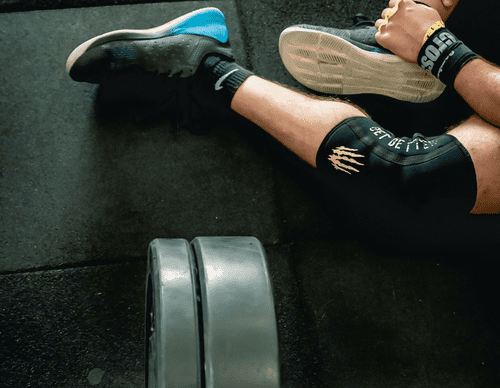Knowing what to eat after a workout is important, eating the right foods can help replenishing energy stores, repairing and building muscle, and promoting recovery. Good options include protein, carbohydrates, healthy fats, water, and recovery drinks.
It’s important to consult a dietitian or healthcare provider for personalised nutrition advice.

Table of Contents
Muscle Gain Nutrition Guideline
- Calories – 16-20 × body weight in pounds
- Protein – 0.8-1 gram per pound of bodyweight
- Fats – 0.3-0.5gram per pound of bodyweight
- Fiber – 10-15g per 1000kcal – Min = 20g
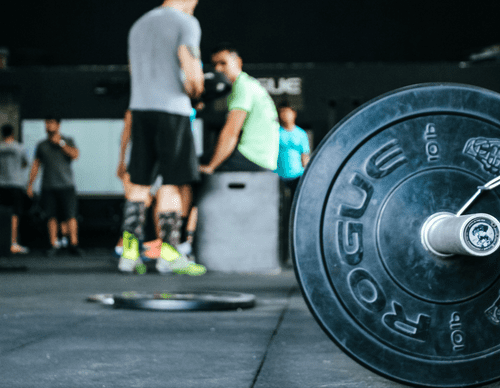
5 Things To Eat And Avoid After Workout
| things to eat | things to avoid |
| Fruits | Processed foods and fast food |
| Protein-rich foods | Alcohol |
| Complex carbohydrates | Fried foods |
| Leafy greens | Large amounts of fiber |
| Water or a sports drink | Sugary drinks and energy drinks |
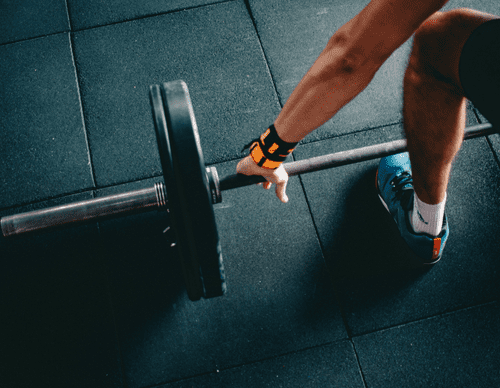
After Workout Guide
What should I eat after workout
After a workout, your body needs nutrients to replenish energy stores, repair and build muscle tissue, and promote recovery. The nutrients that are most important after exercise are protein, carbohydrates, healthy fats, and water.
Protein is essential for repairing and building muscle tissue. When you exercise, you create small tears in your muscle fibers, and consuming protein after a workout helps your body to repair these tears and build stronger muscle tissue. Good sources of protein include lean meats, fish, poultry, eggs, dairy products, beans, and lentils.
Carbohydrates are important for replenishing your glycogen stores, which are your body’s main source of energy during exercise. When you work out, your body uses glycogen to power your muscles. Consuming carbohydrates after exercise can help to replenish these glycogen stores, which can become depleted during a workout. Good sources of carbohydrates include whole grains, fruits, and vegetables.
Healthy fats are important for reducing inflammation and promoting recovery after exercise. Inflammation is a natural response to exercise, but too much inflammation can slow down recovery and increase the risk of injury. Consuming healthy fats, such as those found in avocado, nuts, seeds, and fatty fish, can help to reduce inflammation and promote recovery.
Water is also essential after a workout because you lose fluids through sweat during exercise. Rehydrating after a workout is important to replace fluids lost during exercise and to help with recovery.
In addition to these nutrients, some people may benefit from consuming a recovery drink after a workout. These drinks typically contain a mix of protein, carbohydrates, and electrolytes to help replenish nutrients and aid in recovery. However, it’s important to choose a recovery drink that is low in added sugars and contains high-quality ingredients.
It’s also important to note that everyone’s nutritional needs may vary depending on their individual goals, body composition, and exercise regimen. Consult a dietitian or healthcare provider for personalised nutrition advice.
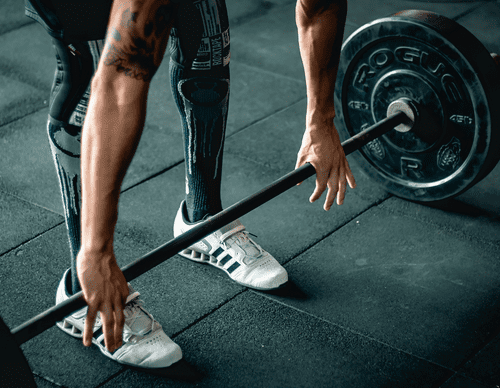
What should you do after a workout
After a workout, there are several important things you should do to help your body recover and get the most benefits from your exercise routine. These include cooling down, stretching, refuelling, hydrating, resting, and tracking your progress.
Cooling down is an essential part of any workout routine. It involves performing low-intensity exercise for a few minutes after your workout to gradually bring your heart rate down to its resting state. This can help reduce the risk of injury and improve circulation, allowing your body to better recover from the workout.
Stretching is also important after a workout, as it can help reduce muscle soreness and improve flexibility. Focus on stretching the muscles you worked during your workout, holding each stretch for 15-30 seconds. This can help improve range of motion and prevent muscle imbalances.
Refuelling after a workout is essential for repairing and building muscle. Eating a nutritious meal or snack within 30 minutes after your workout can help replenish your glycogen stores and provide your body with the nutrients it needs to recover. Be sure to include a balance of carbohydrates, protein, and healthy fats in your post-workout meal or snack.
Hydrating after a workout is also important, as exercise can lead to significant fluid loss through sweating. Aim to drink at least 8-10 cups of water per day, and consider adding electrolyte-rich drinks or foods to your post-workout routine to help replenish lost nutrients.
Resting after a workout is crucial for allowing your body to recover and rebuild. Be sure to get adequate sleep and avoid overtraining, which can lead to injury and burnout. Taking rest days and varying your workouts can also help prevent boredom and keep you motivated.
Tracking your progress is a great way to stay motivated and set new goals. Keep a record of your workouts and track your progress over time to see how far you’ve come. This can help you stay on track and make adjustments to your routine as needed.
Overall, the post-workout routine is an essential part of any exercise program. By taking care of your body after a workout, you can improve your performance, reduce your risk of injury, and enjoy the benefits of regular exercise for years to come.
What to avoid after working out
After working out, there are certain things you should avoid to help your body recover properly and to avoid undoing the progress you have made during your exercise routine. Here are some things to avoid:
Don’t sit or lie down immediately: Avoid sitting or lying down immediately after working out. This can cause your muscles to stiffen up, making them more susceptible to injury. Instead, do some light exercises or stretches to cool down and gradually bring your heart rate down.
Don’t skip the cool-down: Skipping the cool-down is a common mistake that many people make after a workout. The cool-down is an essential part of your exercise routine, as it helps your body recover and reduces your risk of injury.
Don’t forget to stretch: Stretching is important after a workout, as it can help reduce muscle soreness and improve flexibility. Be sure to stretch the muscles you worked during your workout, holding each stretch for 15-30 seconds.
Don’t forget to hydrate: After working out, it’s important to replenish the fluids you lost through sweating. Make sure to drink plenty of water to keep your body hydrated.
Don’t eat unhealthy foods: It’s important to refuel your body with the right foods after working out. Avoid unhealthy foods high in saturated fats and sugars, and instead, opt for a well-balanced meal that includes plenty of protein and complex carbohydrates.
Don’t overdo it: Avoid overdoing it with your workouts, as this can lead to injury and burnout. Be sure to give your body time to rest and recover in between workouts.
Don’t ignore pain or discomfort: If you experience pain or discomfort after a workout, don’t ignore it. This could be a sign of an injury or overuse, and it’s important to seek medical attention if necessary.
In summary, after working out, it’s important to avoid sitting or lying down immediately, skipping the cool-down, forgetting to stretch, not hydrating, eating unhealthy foods, overdoing it, and ignoring pain or discomfort. By following these guidelines, you can help your body recover properly and avoid undoing the progress you have made during your workout.
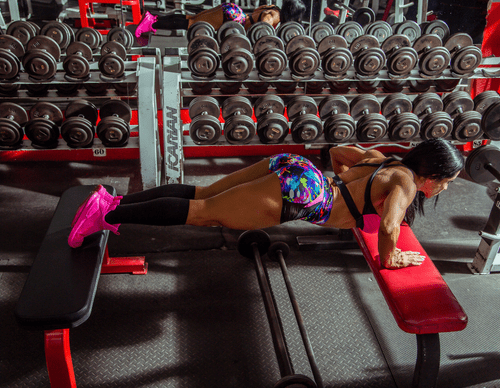
Can I eat fruits after workout
Yes, you can definitely eat fruits after a workout! In fact, fruits can be an excellent source of nutrition and hydration after exercise. Fruits are packed with vitamins, minerals, and antioxidants that can help your body recover from your workout and reduce inflammation.
Eating fruits after a workout can also help replenish the glycogen stores in your muscles, which can be depleted during exercise. Fruits are a great source of carbohydrates, which can provide your body with the energy it needs to recover and rebuild muscle tissue.
Some fruits that are particularly good to eat after a workout include bananas, which are high in potassium and can help reduce muscle cramps and soreness, and berries, which are rich in antioxidants and can help reduce inflammation. Other great options include apples, oranges, grapes, and melons.
It’s important to note that while fruits are a great choice for a post-workout snack, they should not be your only source of nutrition. It’s important to consume a well-balanced meal or snack that includes protein, complex carbohydrates, and healthy fats to help your body recover and build muscle. Consider pairing your fruits with a source of protein, such as Greek yogurt or nuts, to provide your body with the necessary building blocks for muscle recovery and growth.
What To Eat After A Workout For Fat Loss And Muscle Gain
What should I eat after a workout to lose fat
Eating the right foods after a workout is important for promoting fat loss, muscle recovery, and overall health. Here are some examples of foods you can eat after a workout to promote fat loss:
Protein: Eating a high-protein snack or meal after a workout can help promote muscle recovery and growth, which can help boost your metabolism and burn more calories. Good sources of protein include lean meats, fish, eggs, tofu, and legumes.
Vegetables: Vegetables are low in calories and high in fiber, which can help keep you feeling full and satisfied after a workout. Aim to include a variety of colorful vegetables in your post-workout meal, such as spinach, broccoli, peppers, carrots, and sweet potatoes.
Whole grains: Whole grains are a great source of complex carbohydrates, which can help replenish your energy stores after a workout. Good sources of whole grains include quinoa, brown rice, whole wheat bread, and oatmeal.
Fruits: Fruits are high in vitamins, minerals, and antioxidants, and can help replenish glycogen stores and reduce inflammation after a workout. Good choices include berries, bananas, oranges, and apples.
Healthy fats: Healthy fats can help keep you feeling full and satisfied after a workout, and can help support overall health. Good sources of healthy fats include avocados, nuts, seeds, and olive oil.
In general, it’s important to focus on whole, nutrient-dense foods after a workout to promote fat loss and overall health. Avoid processed foods, sugary snacks, and high-fat foods that are low in nutrients and can sabotage your weight loss efforts. Additionally, be mindful of portion sizes and aim to eat a well-balanced meal or snack that includes protein, complex carbohydrates, and healthy fats.
What should I eat after a workout to gain muscle
After a workout, your body needs nutrients to help repair and build muscle tissue. Here are some foods to eat after a workout to help support muscle growth:
Protein: Eating a source of high-quality protein after a workout is essential for muscle growth and recovery. Good sources of protein include lean meats such as chicken or turkey, fish, eggs, Greek yogurt, cottage cheese, and plant-based sources like beans and lentils.
Carbohydrates: Consuming carbohydrates after a workout helps replenish glycogen stores, which your body uses for energy during exercise. Good sources of carbohydrates include whole grains like brown rice, quinoa, and whole-grain bread, as well as fruits and starchy vegetables like sweet potatoes.
Healthy fats: Consuming healthy fats after a workout can help your body absorb nutrients and support overall health. Good sources of healthy fats include avocados, nuts and nut butter, seeds, and olive oil.
Water: Staying hydrated after a workout is essential for proper muscle recovery and growth. Be sure to drink plenty of water after your workout to replace fluids lost through sweating.
Supplements: Some people choose to use supplements like protein powder or branched-chain amino acids (BCAAs) to help support muscle growth after a workout. While supplements can be helpful, they should not replace a well-balanced diet.
It’s important to note that timing is also important when it comes to post-workout nutrition. Eating within 30 minutes to an hour after a workout can help maximize the benefits of the nutrients you consume. Aim to eat a well-balanced meal or snack that includes protein, carbohydrates, and healthy fats to support muscle growth and recovery.
